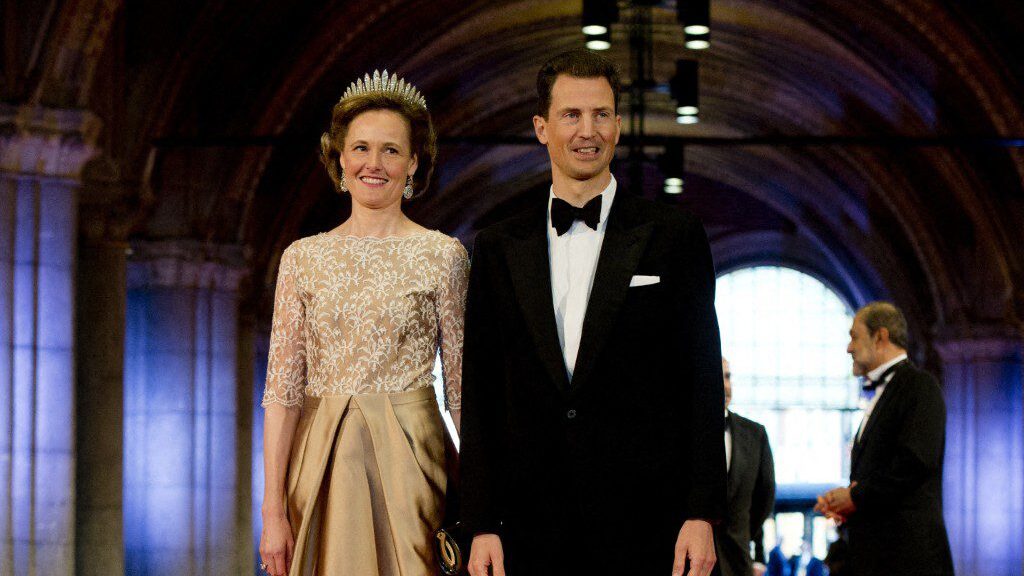Abortion
Europe’s pro-life royals
As a dual American-Canadian citizen, my views on monarchy have always been somewhat schizophrenic. To be an American conservative is to be committed to the legacy of the American Revolution and the Founders; to be a Canadian conservative is to be committed to ‘Queen and Country.’ Queen Elizabeth II, fortunately, made it easy to be a monarchist; her omnipresent, stalwart visage always seemed to be a bulwark against liquid modernity and its accompanying ills. Thus, I read Charles Coloumbe’s recent essay “The Aragorn Option” on the return of monarchy with interest.
The late Queen has been described (by a papal official, no less) as “the last Christian monarch,” but her sterling record of lifelong service has one ugly blemish—her granting of Royal Assent to the 1967 Abortion Act, which resulted in the destruction of more than six million preborn children. The Queen’s role in a constitutional monarchy, of course, was largely symbolic, but it is also true that this symbolic role afforded her a tremendous opportunity. To refuse to grant Royal Assent would likely have created a constitutional crisis. It still would have been the just and moral thing to do.
We have an example of a European royal who did just that. In 1990, King Baudouin I of Belgium notified his cabinet that he could not, in good conscience, give his Royal Assent to proposed laws permitting abortion. The prime minister begged the king to reconsider, but the monarch staunchly refused to violate his conscience and grant his signature to what amounted to a death warrant for the most vulnerable members of his country. The leadup to legalization—decided in the Chamber of Representatives by a margin of 126 to 69 with 12 abstentions—had been tumultuous, with intense demonstrations highlighting the pro-life opposition.
The very popular king and the politicians were at an impasse, and a novel solution was produced. In 1831, Article 82 (currently Article 93) of the Constitution had been adopted, stating that the monarch could be declared “unable to govern” during times of crisis and that his authority could devolve to the Belgian government during that time. Previously, Article 82 had only been used once—when King Leopold III was detained by the Nazis during the Second World War. The New York Times reported how the strange situation played out in a column titled “Belgian King, Unable to Sign Abortion Law, Takes Day Off”:
The civilian Government temporarily suspended King Baudouin I from power today after he declared that he could not, in good conscience as a Roman Catholic, sign a new law permitting abortion. After declaring the King “unable to govern,” the Cabinet assumed the King’s powers and promulgated the abortion law, which was published in the official gazette. And it called the Chamber of Deputies and the Senate back from Easter vacation for a special session on Thursday. The lawmakers will be asked to vote on the proposition that the 59-year-old King is once again able to govern.
Belgium was thus without a king for 36 hours, after which he was promptly reinstated. Cynics might claim that the result was the same—but that is to ignore the fact that King Baudouin used his royal position to send a powerful anti-abortion message, encouraging the pro-life movement and signalling to his people that conscientious objection to abortion is a moral duty no matter what the cost. King Baudouin knew that despite the wealth and prestige that came with his position, in the end, we meet the Creator of life alone—and political prevarications will be no justification for violations of conscience.
King Baudouin’s example is rare but not singular. Liechtenstein, a tiny country of only 160 square kilometres and a population of 36,000, is another pro-life sanctuary. Abortion is illegal in almost all circumstances, and women drive to either Austria or Switzerland to procure one. In 2012, Hereditary Prince Alois, a devout Catholic, responded to a referendum to legalize abortion (until the first 12 weeks of pregnancy) before the vote was scheduled by announcing that he would exercise his royal prerogative to veto any attempt at loosening restrictions on abortion. Voters subsequently voted against legalization.
READ THE REST OF THIS COLUMN HERE









You’re mistaken about the Abortion Act 1967. In the case of Greater Glasgow Health Board v Doogan & anor [2014] the UK Supreme Court ruled that section 4 of the Act (conscientious objection) applied only to acts made lawful by section 1 – namely “hands on” participation. Any other (accessorial) participation in abortion that was criminal before 1967 has always been criminal thereafter.
Moreover, in so far as abortion is performed with intent to kill, it is statutory attempted murder by section 1 of the Criminal Attempts Act 1981.
In fixing Royal Assent to an Act, the Sovereign acts only as a notary, certifying that all Parliamentary stages have been duly complied with. He is not an estate of the realm and has no discretion in the matter.
I am quite pleased to hear this, as I am very fond of the Queen.
If the Queen didn’t actually give her Royal Assent, should you now do a bit more research and edit the article?
She did give it Royal Assent. On October 27, 1967. The comment is to what level of culpability that grants, which is debated. I prefer the analysis that it is of less culpability. You must have read the preceding comment wrong.
This, for example, is one view of that: https://www.lifesitenews.com/blogs/uncomfortable-truth-the-queens-golden-jubilee/
Here is another: https://romanchristendom.blogspot.com/2010/07/no-queen-did-not-have-power-to-veto.html
I prefer the commenter’s view.
Thank you .I didn’t know this.